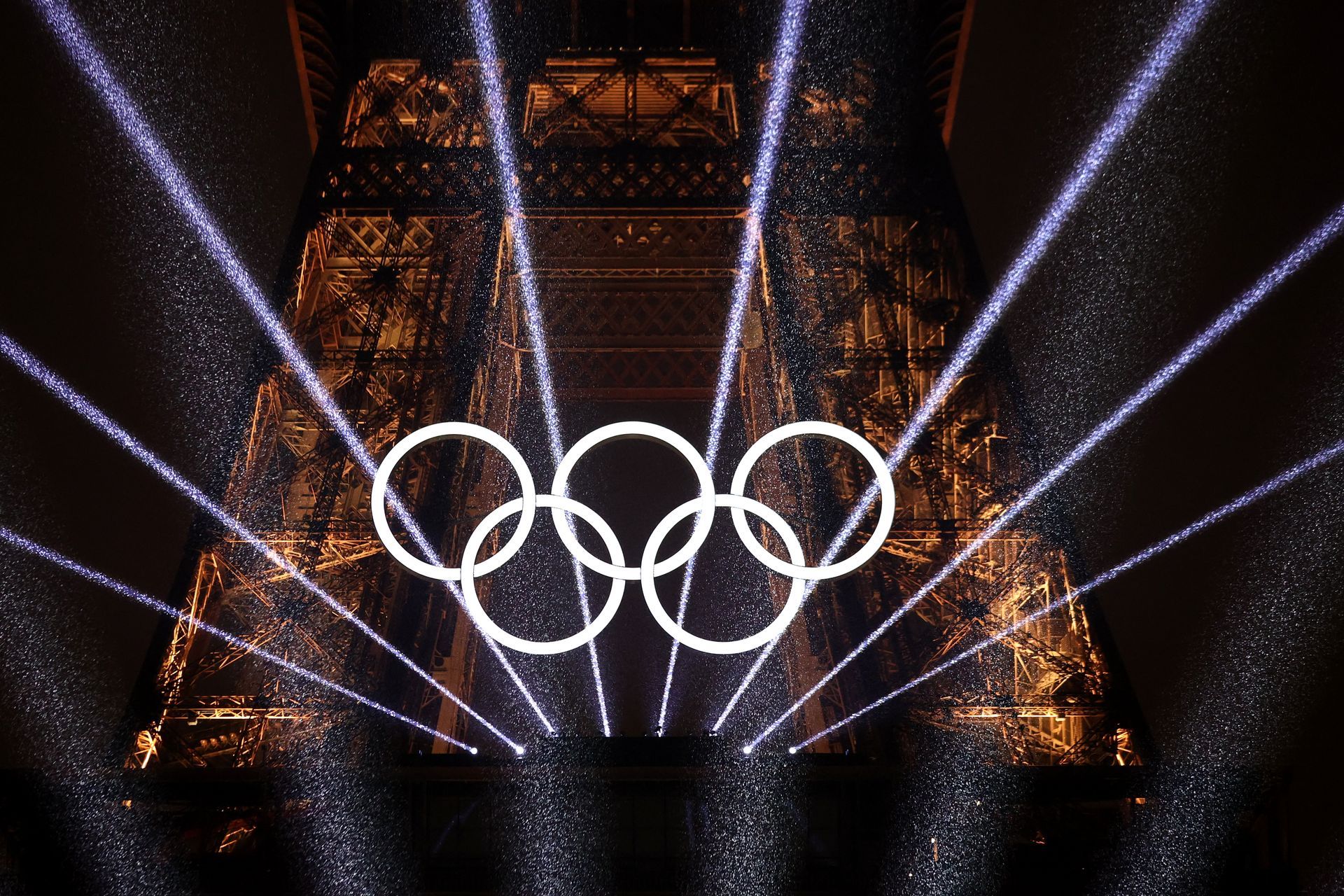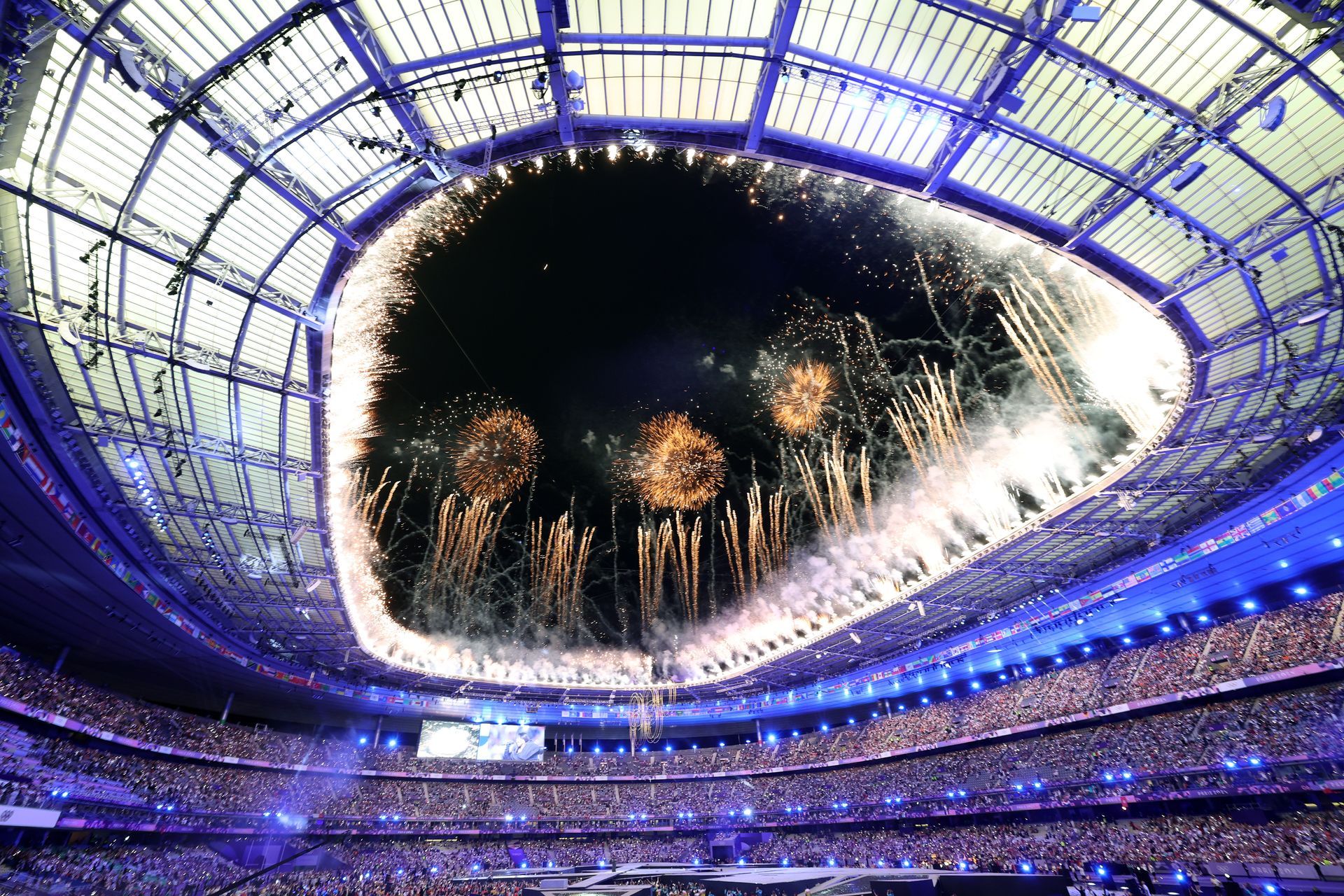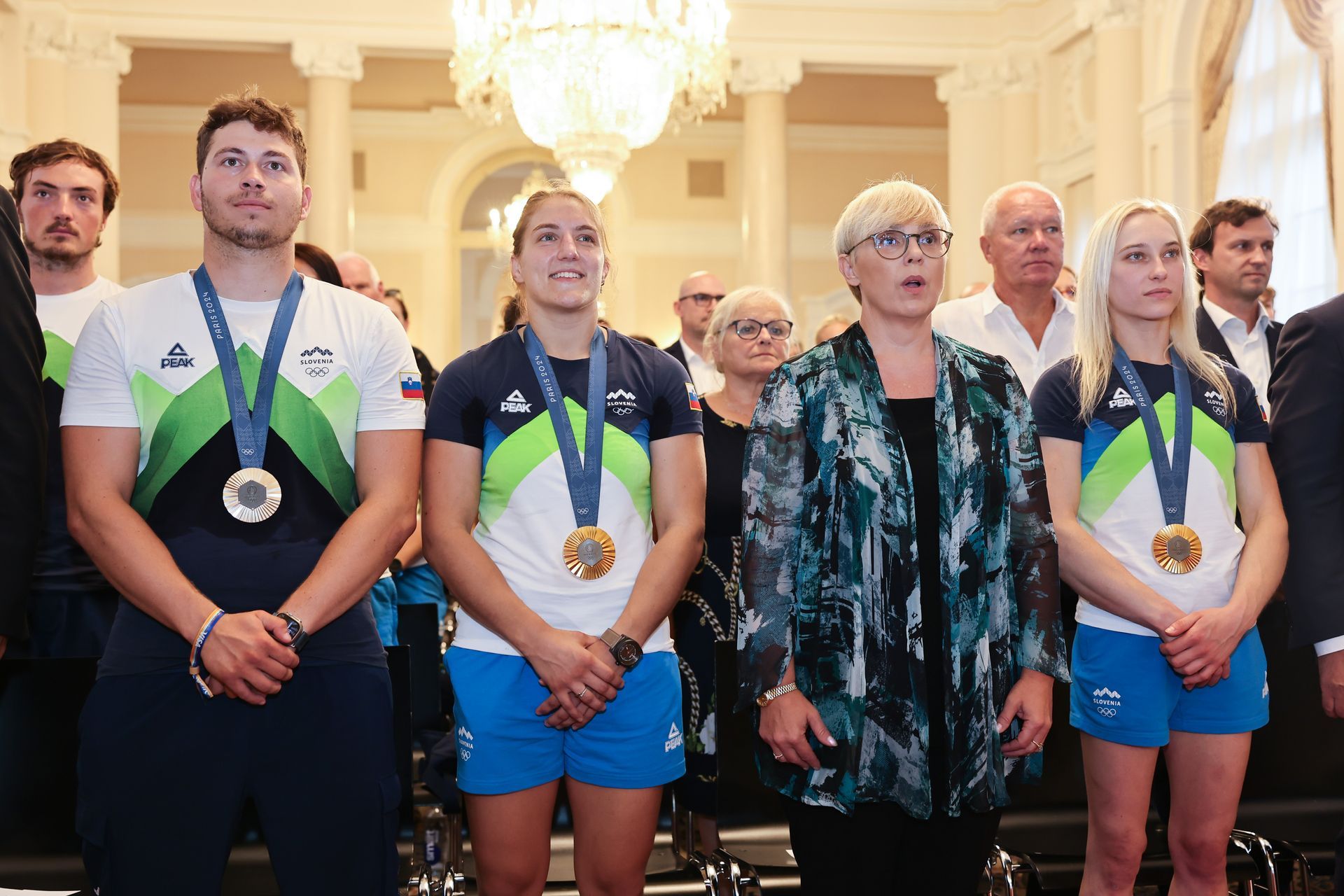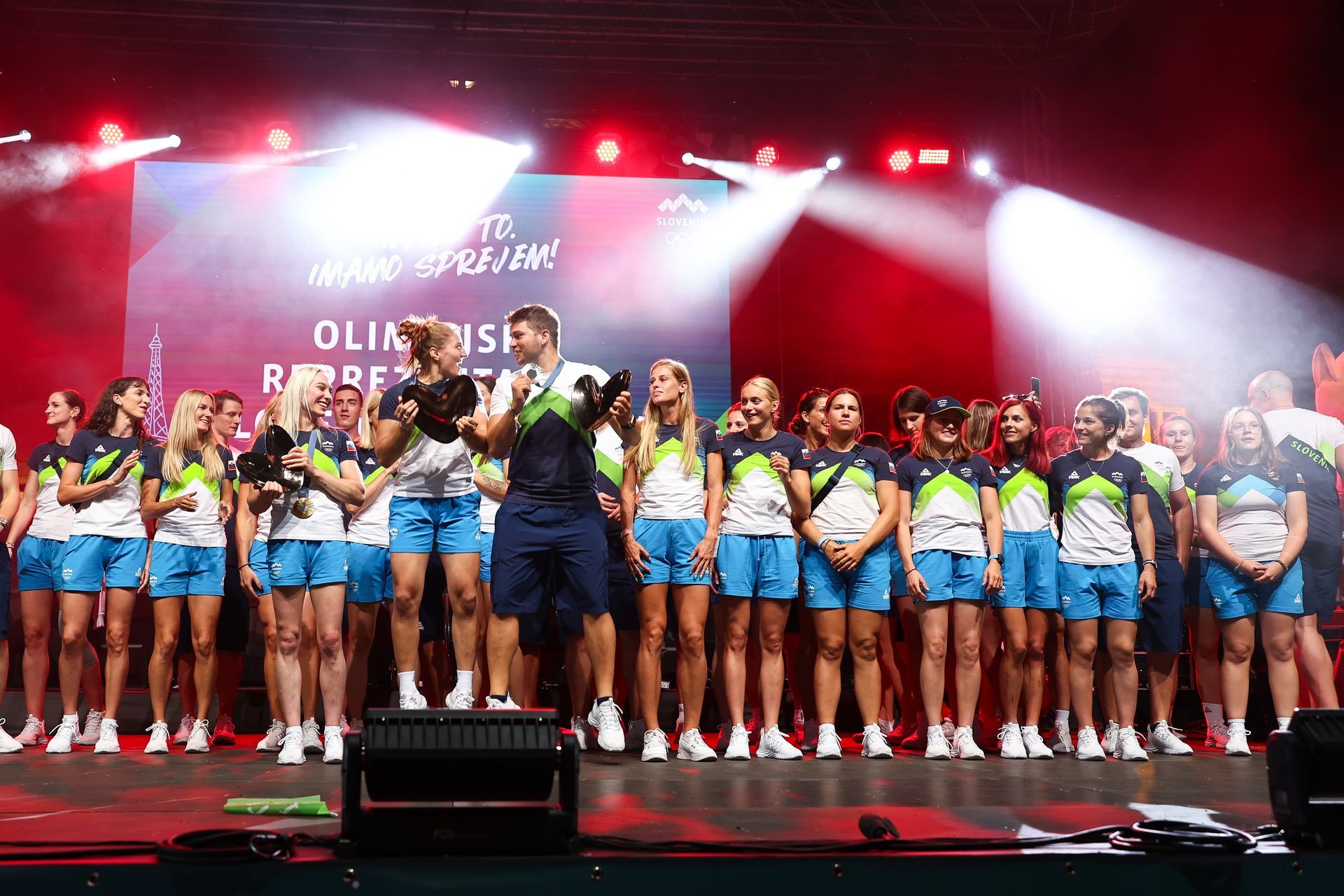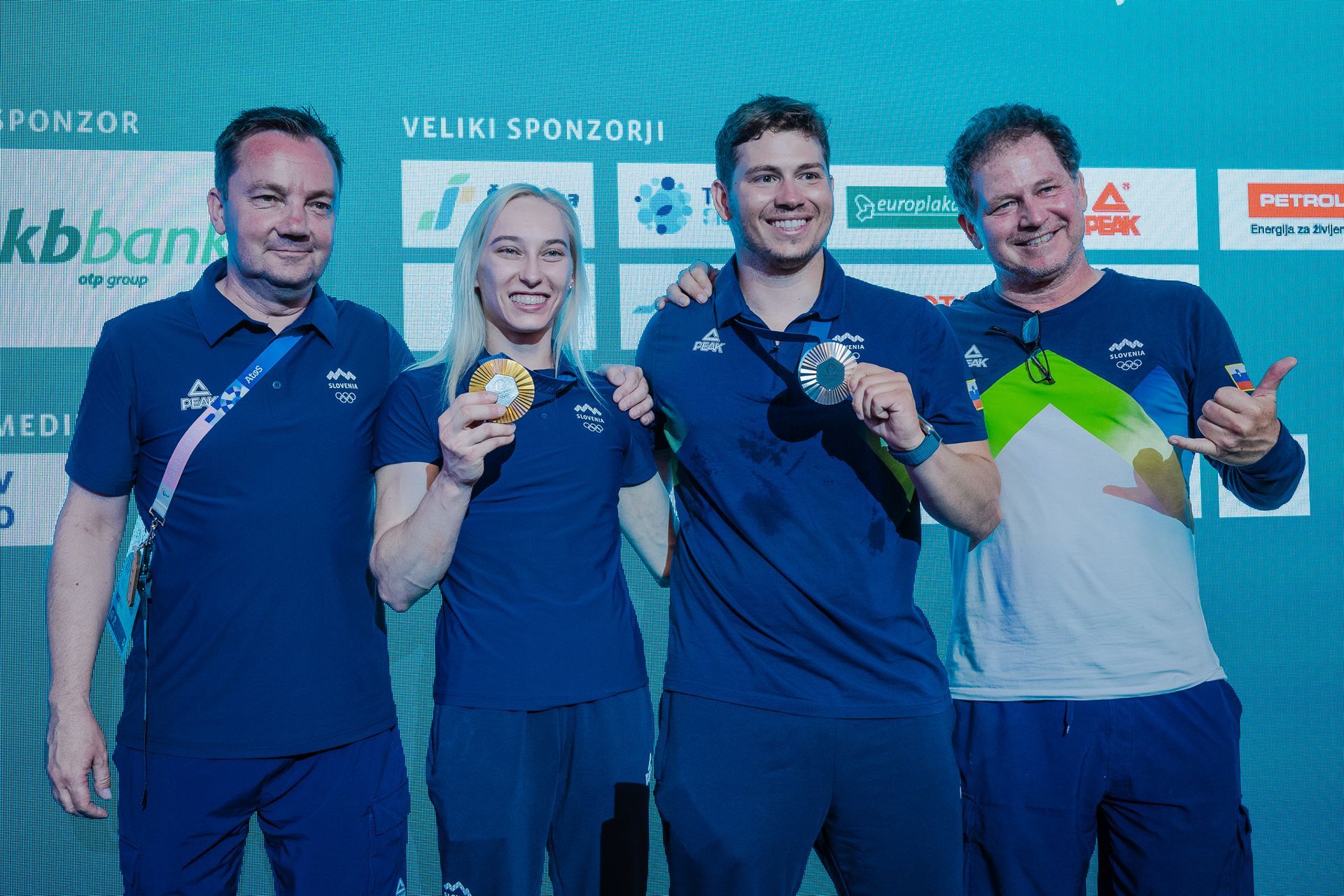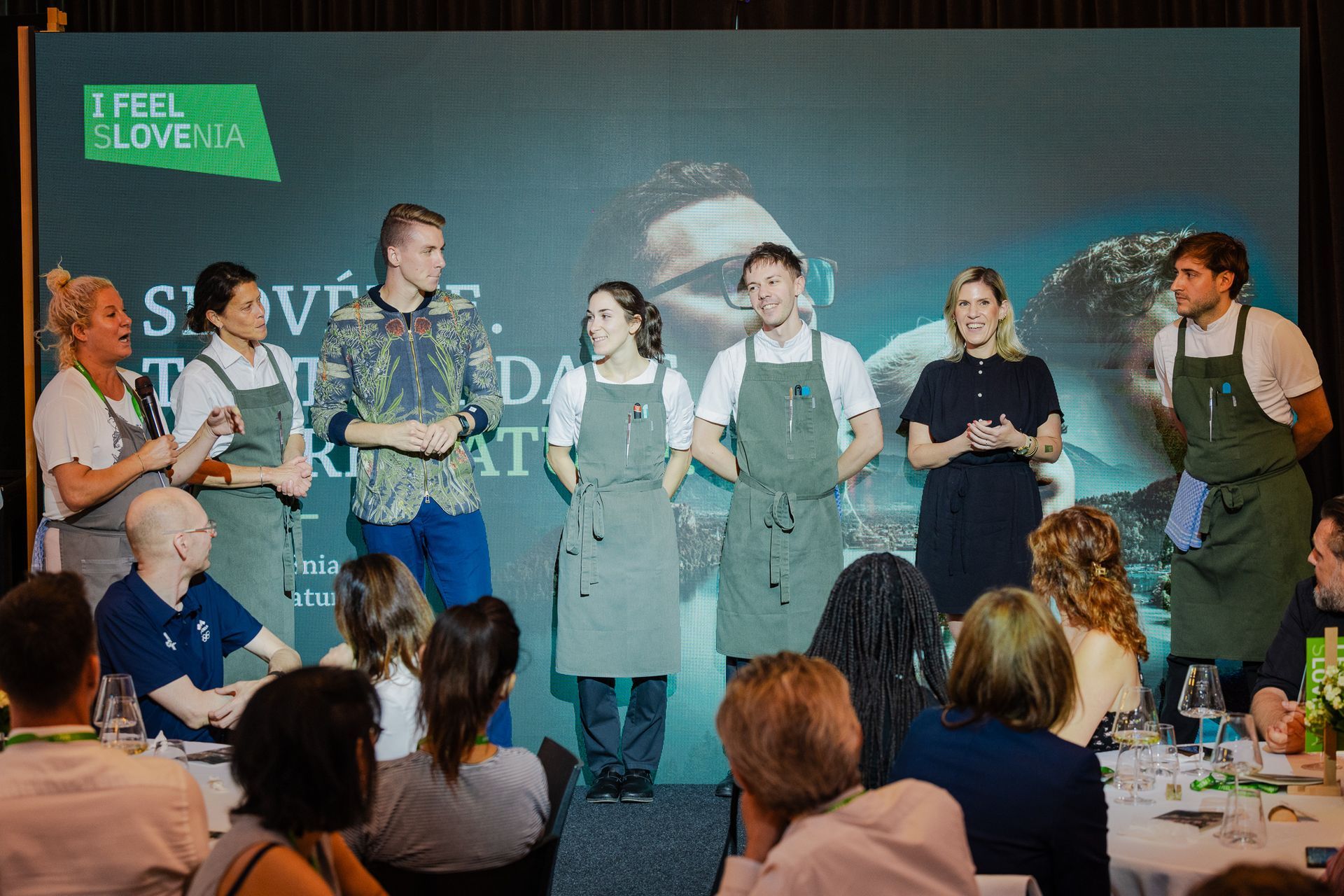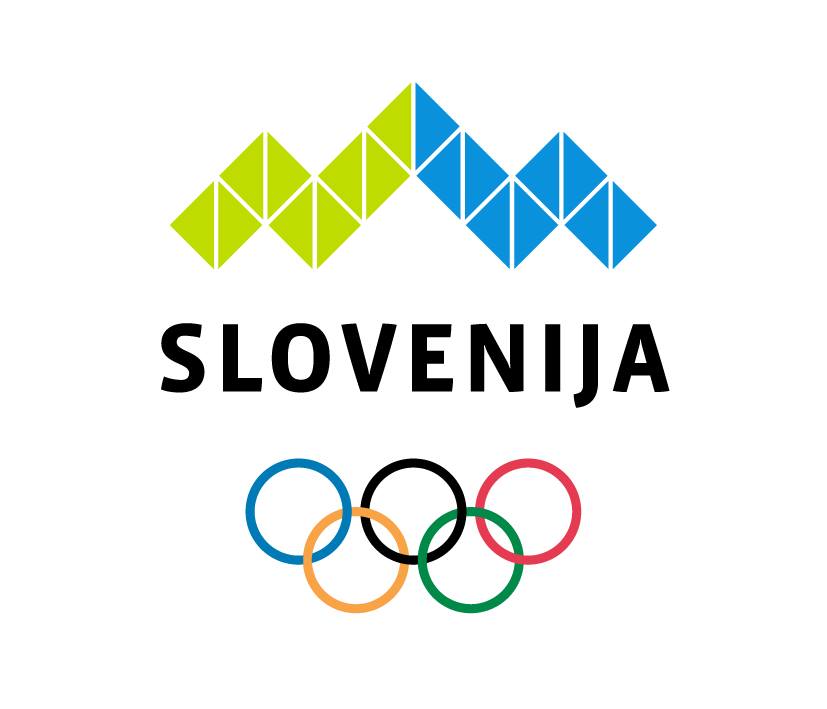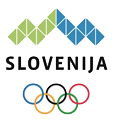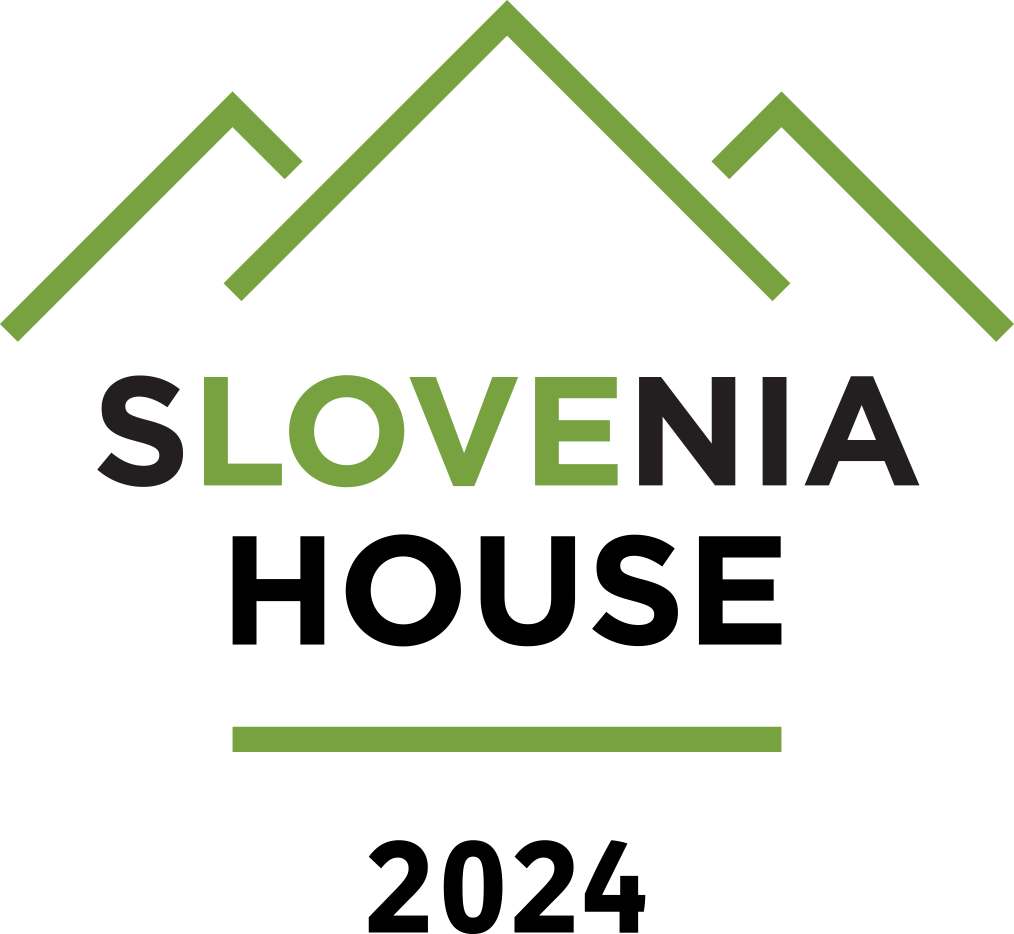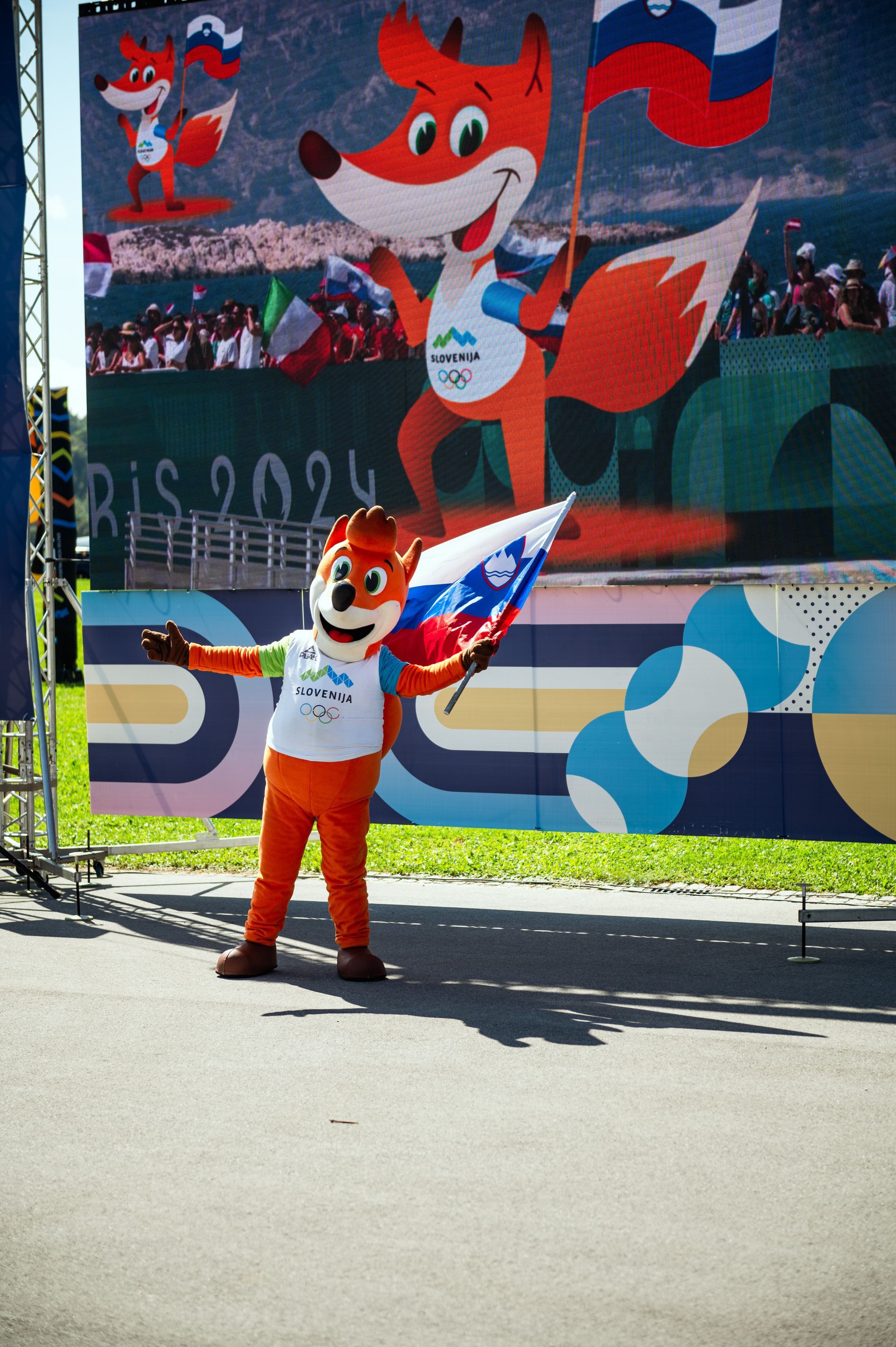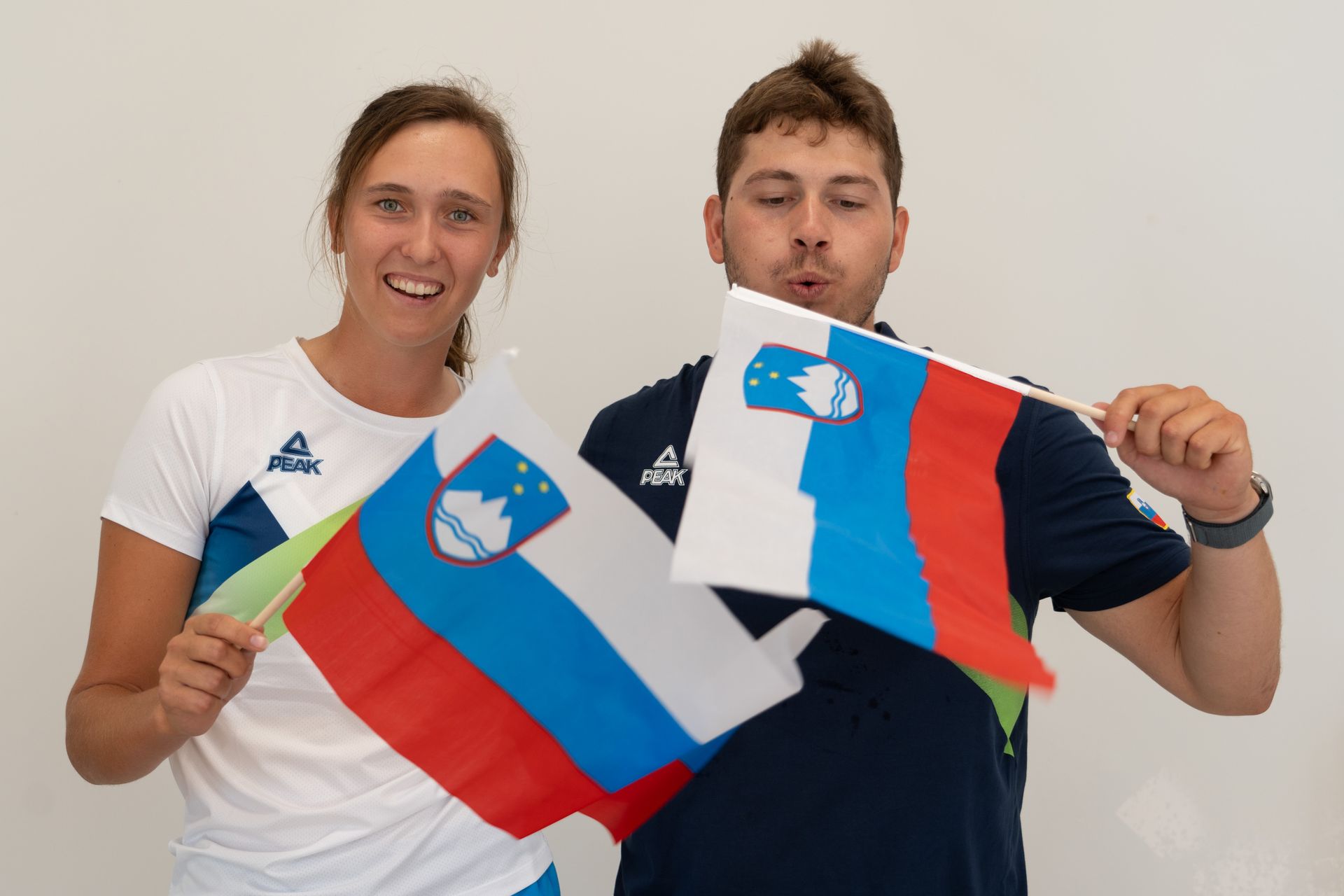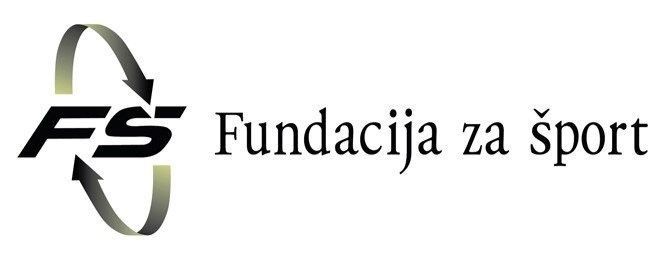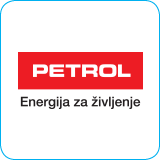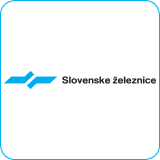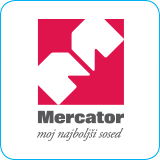Round table on gender equality in sport - much done, more needed
July 28 2024
Today, the first thematic event on Gender Equality in Sport took place at the Slovenia House in Paris. Gender equality is one of the priority topics of the International Olympic Committee and the Slovenian Olympic Committee - Association of Sports Federations.
Gender equality is fundamental to the development and success of the Olympic Movement, ensuring that all athletes enjoy equal opportunities to succeed, contributing to broader representation, promoting fairness and equality in sport and in society more broadly. For the first time in the history of the Olympic Games, the number of female athletes in Paris is equal to the number of male athletes. The Slovenian team also has the highest proportion of women ever - 49%.
The gender equality panel discussion featured distinguished guests: Dr Nataša Pirc Musar, the president of the Republic of Slovenia, HRH Prince Feisal Al Hussein, President of the Olympic Committee of Jordan and member of the IOC and Vice-Chair of the IOC Commission for Gender Equality, Diversity and Inclusion, Annamarie Phelps, Chair of the EOC Commission for Gender Equality, Diversity and Inclusion and former World Rowing Champion, Barbara Žibret Kralj, Country Managing Partner, Deloitte Slovenia and Deloitte Global Lead Audit and Assurance Partner – IOC, and Gustavo Merino, Director of Social Policies at UNESCO.
The President of the Republic, Dr Nataša Pirc Musar, who has made gender equality a priority in her work and who stresses that without gender equality we will not make progress, highlighted her efforts and commitment to gender equality in society. She shared with the guests some examples of her commitment to an equal approach towards women, especially in sport, where it is not only about equality but also about fairness.
Prince Al Hussein said that we have come a long way, but there is still a long way to go. "We need to realise that we men and women complement each other and that this is what makes the world a better place," the Prince said. He outlined the many steps the IOC has taken to move the needle on gender equality in sport. He highlighted the concrete example of the Paris Olympics where, for the first time since its inclusion in the Olympic programme in 1984, the women's marathon will be held the day after the men's marathon and will conclude the athletics programme during the closing ceremony. For many years, the men's marathon has occupied this place, representing the culmination of the Olympic 14-day programme.
Annamarie Phelps, who chairs the European Olympic Committee's Commission for Gender Equality, Diversity and Inclusion, pointed out that "we cannot talk about progress on gender equality if we do not know the facts, the statistics." Recently, the numbers have been correcting, but too slowly. In Europe, we are close to 30% women on the executive boards of the Olympic Committees. That is why it is important for all of us to look at the data and take important steps on the road to gender equality," she said.
Gustavo Merino, Director of Social Policies at UNESCO, pointed out that 80% of women leaders in the list of Fortune 500 have been involved in sport in the past. Sport can be an important support in gender equality and in supporting women."He also presented the important UNESCO Fit4Life project.
Barbara Žibret Kralj said that in business, as in sport, things are moving too slowly in the direction of gender equality and that there is basically no difference when it comes to gender equality in business or in sport. Sport and business, and other areas too, must share the same values, she believes. "We need to integrate equality into our strategies, guidelines alone are not enough," she said.
Later in the discussion, the panellists also touched on the issue of sponsorship investment, without which both top-level and grassroots sport could not exist. Unfortunately, it is still the case that sportsmen take a much larger share than sportswomen.
Marta Kos, President of the ONA VE Association, who moderated the discussion, concluded by presenting the joint action of ONA VE and the Slovenian Olympic Committee - Association of Sports Federations. The two organisations will jointly call on sports associations and federations in Slovenia to nominate as many women as possible for the highest national sports award, the Bloudek Prize.
Background:
The Olympic Games in Paris are important for women's sport. It was in Paris 1900 that female athletes made their first official appearance at the 1900 Olympic Games in five sports: tennis, sailing, croquet, equestrian and golf. Slovenian female athletes competed for the first time at the 1936 Berlin Olympics.
Attitudes towards women in sport are also reflected in the proportion of female athletes at the Olympic Games. It has taken 124 years to get to an equal proportion of female and male athletes. In 1900, only 2.2% of women competed in the Games. Their numbers gradually increased in the Games that followed. At the first Olympic Games after World War II in London in 1948, 9.5 per cent of women were women. When Slovenia, as an independent country, competed for the first time at the 1992 Barcelona Games, 28.9% were women. In Sydney in 2000, after 100 years of the modern Games, 38.2%, in London 2012 44%, in Tokyo 2020 48% and this year in Paris 50%.
IOC President Thomas Bach, who announced gender parity on the competition venues at the Paris Olympics in March this year, said: "We are facing one of the most important moments in the history of women in the Olympic Games and in sport in general. We look forward to Paris 2024, where we will see the results of the Olympic Movement's tremendous efforts come to life. This is our contribution to a more equal world."
The IOC has done much over the years to improve opportunities for sportswomen and sportsmen.
It has implemented other ideas in cooperation with international sports federations and National Olympic Committees (NOCs) that have led to (better) equal opportunities for sportswomen and sportsmen:
- a more balanced sports programme, with 28 of the 32 sports in Paris being fully gender-equal
- A more gender-balanced number of medal competitions, with the Paris 2024 programme including 152 women's events, 157 men's events and 20 mixed events. This means that more than half of all medal events at Paris 2024 will be open to female athletes.
In addition, the IOC has taken a number of important steps to raise the profile of women at the Olympic Games:
- From Tokyo 2020 onwards, it encourages National Olympic Committees to have one female and one male athlete carrying the flag together at the Opening Ceremony.
- It also encourages them to include at least one female and one male athlete in their delegation.
- A lot of effort has also been put into ensuring that there is a fair distribution of women's and men's sporting events over the 16 days of the Olympic Games A gender-balanced schedule allows journalists to better balance their coverage, making it easier for the next generation of female and male athletes to follow their role models in the media. IOC President Thomas Bach, who announced gender parity on the competition venues at the Paris Olympics in March this year, said: "We are facing one of the most important moments in the history of women in the Olympic Games and in sport in general. We look forward to Paris 2024, where we will see the results of the Olympic Movement's tremendous efforts come to life. This is our contribution to a more equal world."
More photos at:
Gallery.
